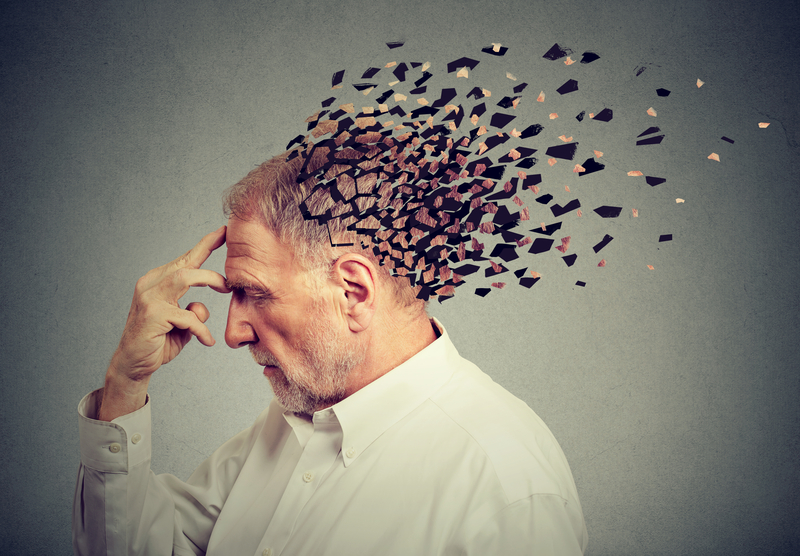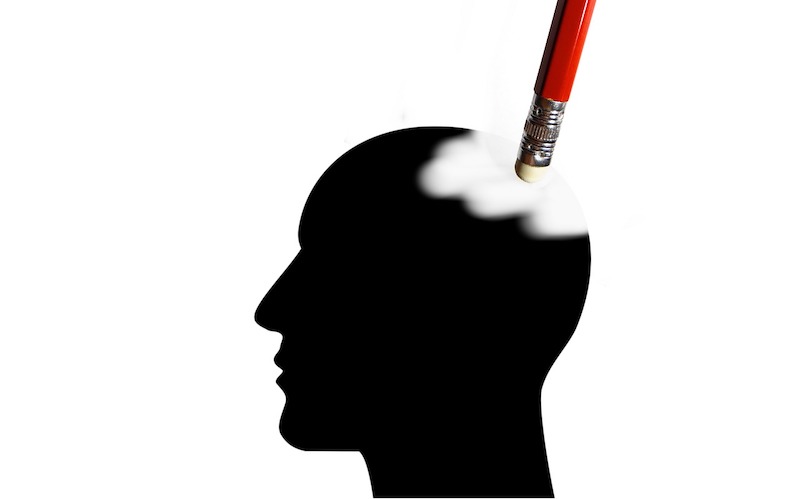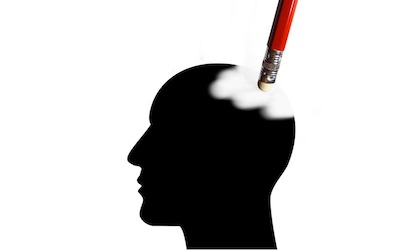Memory loss is a problem that is shared by a large number of people, particularly as people become older. It is critical to have a solid understanding of the signs and symptoms of memory loss to facilitate early diagnosis and the provision of appropriate treatment. This article will discuss the numerous indications to watch out for when it comes to memory loss and the actions you can take to get proper treatment for your condition. Recognizing these indications and adopting preventative actions can substantially influence your quality of life and help you more successfully overcome memory-related issues.

Memory Loss: Recognizing Symptoms and Seeking Help
Forgetfulness and Memory Lapses
Memory deterioration often starts with forgetfulness. Missing appointments, losing things, or having trouble remembering recent events or conversations are warning indicators. Memory lapses might become increasingly evident with time. Be aware of these changes and seek medical help if you have memory difficulties. Early identification and intervention can help manage memory loss and cognitive health. Remember, everyone’s memory is different, but if you find major changes, see a doctor.
Difficulty with Concentration and Focus
Memory loss and difficulties with concentration can have a significant impact on daily life, affecting both work and personal activities. It’s important to recognize that these issues can be caused by a variety of factors, including stress, anxiety, sleep deprivation, or underlying medical conditions. Seeking professional help from a healthcare practitioner, such as a neurologist or psychiatrist, is crucial for a thorough evaluation and appropriate treatment. They can conduct comprehensive assessments, including cognitive testing and medical examinations, to identify the root cause of the concentration and attention difficulties. Treatment options may involve lifestyle modifications, therapy, medications, or a combination of approaches tailored to individual needs. Taking proactive steps to address these challenges can help improve cognitive function, enhance productivity, and enhance overall well-being.
Word Finding and Communication Challenges
Memory loss can lead to difficulties in finding the right words and effectively communicating ideas. Simple tasks like recalling familiar names and following conversations might become challenging, causing frustration and communication breakdowns. Expressing yourself may take longer, and you might rely on others to help fill in memory gaps. Seeking assistance from healthcare professionals and memory aides can greatly improve your ability to communicate and engage in meaningful conversations despite these challenges.
Impaired Problem-Solving and Decision-Making
Memory loss can significantly impact your ability to assess information, solve problems, and make decisions. Tasks that require logical reasoning and critical thinking may become more challenging, affecting various aspects of your life, including work, relationships, and daily activities. Seeking support from coworkers, friends, or healthcare specialists can be beneficial in navigating these challenges. They can provide assistance, guidance, and reminders to help you overcome memory-related difficulties. Implementing strategies such as breaking tasks down into smaller steps, using memory aids like calendars or reminder apps, and practicing mindfulness techniques can improve problem-solving abilities and enhance your overall cognitive function.
Decreased Spatial and Navigational Skills
Memory loss can impair spatial awareness and navigation, making it hard to find your way even in familiar places. Maps, directions, and unfamiliar settings can become difficult. Spatial awareness might affect a person’s autonomy and independence since they can need help navigating. Memory loss can impair spatial awareness, although GPS gadgets, landmarks, and aid from others can help. Having a schedule and familiar surroundings can also help with everyday tasks.

Memory Loss: Seeking Help
Consult with a Healthcare Professional
Consult a doctor if you have memory loss. To diagnose memory loss, the doctor will examine your symptoms and medical history and suggest required tests. Early diagnosis enables prompt action and therapy. Quick medical treatment can discover reversible memory loss reasons like pharmaceutical side effects or nutritional deficiencies and manage progressive illnesses like dementia or Alzheimer’s disease. Early medical guidance can help you enhance your cognitive health and well-being.
Engage in Cognitive Stimulation
Cognitive stimulation is vital for enhancing memory and cognitive abilities. Engaging in activities such as reading, keeping up with current events, and participating in stimulating conversations can keep the mind sharp and improve memory. Solving puzzles, crosswords, and playing chess can also boost overall cognition. Furthermore, learning new skills and undertaking activities that require focus and problem-solving contribute to improved brain health. Embracing a variety of mental exercises can foster better memory retention, strengthen brain connections, and enhance cognitive performance as one ages.
Maintain a Healthy Lifestyle
In addition to seeking medical assistance, adopting a healthy lifestyle can play a crucial role in protecting brain health and improving memory. Including a variety of fruits, vegetables, whole grains, and lean meats in your diet provides essential nutrients that support optimal brain function. Adequate sleep is vital for memory consolidation and cognitive processes, so aim for a consistent sleep schedule and prioritize quality rest. Engaging in regular physical exercise not only promotes overall health but also increases blood flow to the brain, stimulating neuron development and enhancing memory. Mindfulness practices like meditation and deep breathing exercises have been shown to reduce the risk of cognitive decline and improve memory performance. Making these lifestyle changes can have a positive impact on brain health and memory, supporting your overall well-being as you navigate through daily life.
Stay Socially Active
Enjoyable as they may be, social activities are also essential to the well-being of one’s mind. Maintaining ties to loved ones and groups in your neighborhood might help you grow personally and intellectually via dialogue and shared experiences. Participating in sports, hobbies, and other extracurricular activities might help you meet new people and keep your mind active. These activities might help you feel more connected to others and less alone in the world. Regular participation in social activities has been shown to improve cognitive performance, memory, and psychological health in older adults, ultimately leading to a higher quality of life.

Explore Memory Care Programs and Support
If memory loss continues to worsen and cause substantial difficulties in your everyday life, it may be time to explore the benefits of memory care communities. Designed to assist individuals experiencing memory impairment, these programs provide personalized care, cognitive exercises, and emotional support. Memory care professionals are trained to understand and address the unique needs of individuals with memory-related conditions, such as Alzheimer’s or dementia. Through a combination of specialized care, structured activities, and a supportive environment, memory care programs aim to enhance the quality of life, promote independence, and provide peace of mind for both individuals and their loved ones.
Conclusion
Maintaining cognitive health and high quality of life requires awareness of warning signs related to memory loss and seeking prompt treatment. Talk to a doctor if you or a loved one have cognitive issues, including memory loss, inattention, trouble communicating, difficulty solving problems, or a lack of spatial awareness. Effectively managing memory loss can be aided by engaging in cognitive stimulation, keeping a healthy lifestyle, being socially engaged, and investigating memory care programs and assistance. Remember that early identification and preventative treatment is the best way to combat memory problems and preserve cognitive health.

